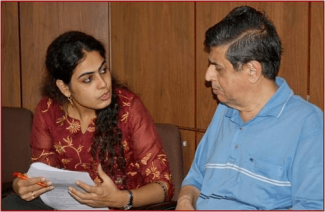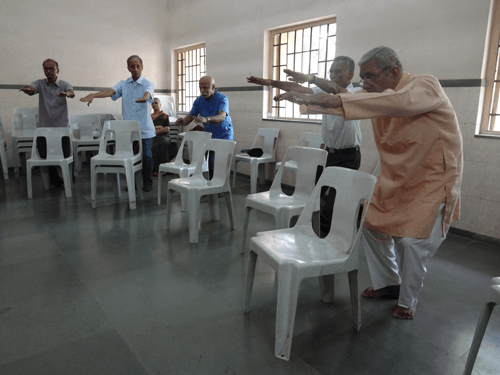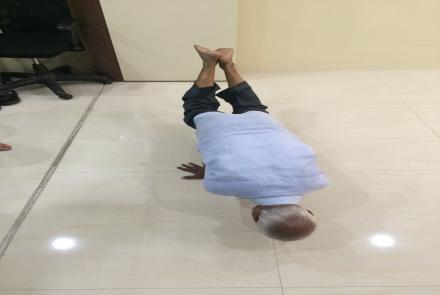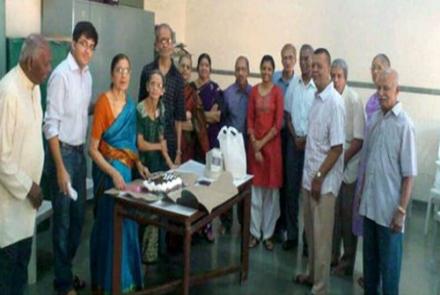
What can you do when you have Early Stage Parkinson's
Taking Control of Parkinson’s:
Make a decision today to take control of your life with Parkinson’s. The key to living an optimally healthy, happy and fulfilling life is in your hands. Here are some pointers to help you take control.
Acceptance:
It is important that you accept that you have Parkinson’s. Then only will you be able to take control of it. Acceptance does not mean you’re “giving up” instead it is the first hurdle you must cross in order to take control of this condition.
Choose a good doctor:
Find a doctor who you are confident about and whom you feel comfortable with, as he/she will become an important part of your journey with Parkinson’s. You are entitled to take a second opinion, but a trusting relationship with your doctor is essential.
Learn about Parkinson’s:
Learn all you can about your condition. Read about all aspects of Parkinson’s – causes, symptoms, available treatment and management options and prognosis. This knowledge will help you to anticipate and prepare for potential changes in your life. Remember, knowledge is power!
Understand your own condition:
It is important to understand how your Parkinson's symptoms may vary during the day so that you can plan your outings and activities accordingly. Your Parkinson’s is your own - do not assume that you will experience the same symptoms or problems as someone else. Learn to recognize your own symptoms and share any unusual observations with your doctor and healthcare team.
Be Patient:
Due to the nature of Parkinson’s, it might be difficult to do certain things as well or as fast as you were able to previously. But it is very important to be patient with yourself and accept these changes. Try not to give up; even if an activity might take you longer, it is important that you complete it instead of giving up.
Focus on what you can do:
Everyone is capable of doing certain things and incapable of others. With Parkinson’s, you must accept that there will be things that you might not be able to do and things that you might find difficult to do, but there will also be things that you can do. It is important to focus on what you can do.
Be Positive:
It is important that you make an effort to be positive. It may not be possible to have a positive attitude at all times but it is important to constantly remind yourself to try. It has been observed that those affected with Parkinson’s who have a positive attitude towards Parkinson’s have a slower progression of the symptoms of Parkinson’s. So make an effort today to change your attitude and experience the difference.
Motivate yourself:
Sometimes when things get hard you may want to give up. But keep strong and don’t give up. Motivate yourself. Tell yourself, “I have Parkinson’s, but Parkinson’s will not have me. I have Parkinson’s, but it will not control how I live my life.” Constantly restating these thoughts to yourself, will allow you to continue to do the many tasks you enjoyed.
Keep yourself busy:
It is important for you to keep your mind active and attentive by keeping yourself busy throughout the day. Ways to keep yourself busy could include going for outings or attending social functions, taking up a hobby, cooking, gardening, music, art etc., getting a pet, preparing for festivals and religious ceremonies, conducting prayer ceremonies, traveling, giving back to society in the form of social service, doing the crossword, playing card games, interacting and spending time with your children and grandchildren etc. The busier you are the less time you will have to think about your Parkinson’s.
Communicate with other people diagnosed with Parkinson's:
Talking to people who are going through the same things as you are will help you to get a lot more perspective on the condition and its management. You can learn new techniques on how to deal with your difficulties and problems. Joining a support group will help you meet others with the Parkinson’s. Join a support center in your area today.
Medications:
Medications should be taken regularly and on time. Do not stop or start taking any medications, or increase or decrease the dosage without consulting your doctor first.
Exercise:
Exercise is most important for people with Parkinson’s. Along with improving one’s general health and wellbeing, it also helps improve the body’s response to dopamine. You must exercise for 30 minutes to an hour every day. It is the quality of exercise that is most important, so make sure you have learnt the exercises from a trained professional. Go to physiotherapy exercises (link to resources – physiotherapy for Parkinson’s) to learn about exercises you can do at home.

Stay tuned next week for upcoming articles on middle stage and advanced stage Parkinson's.













